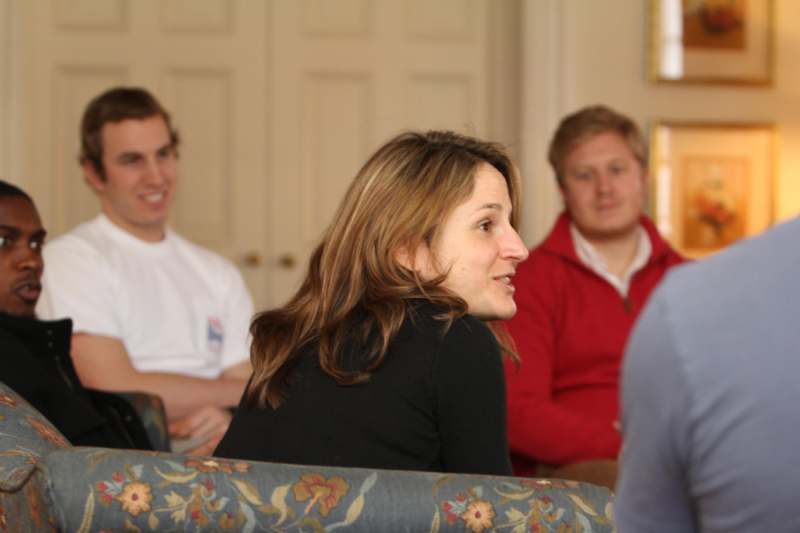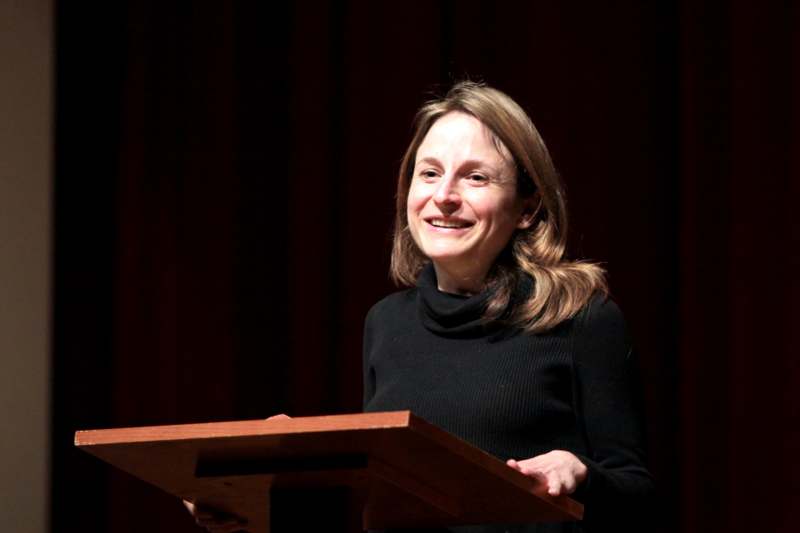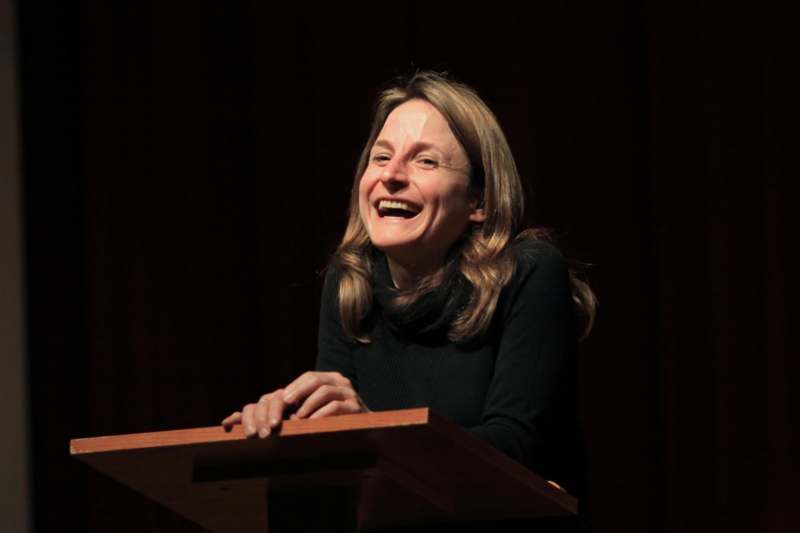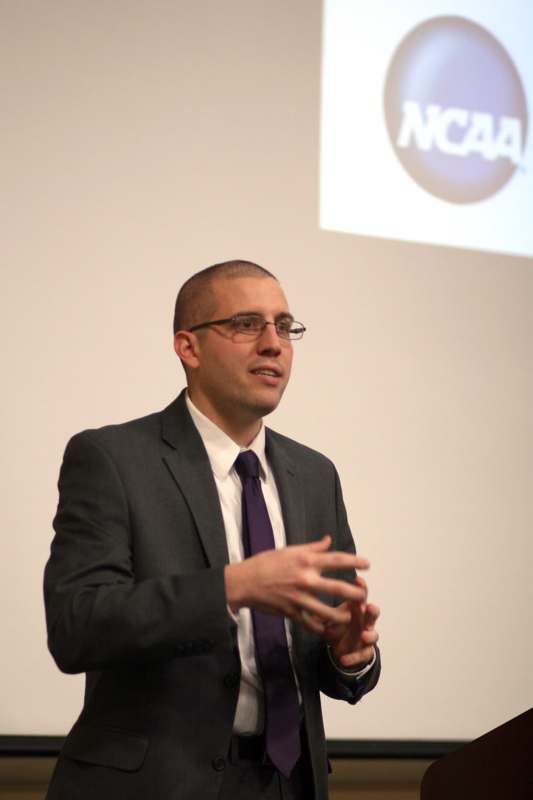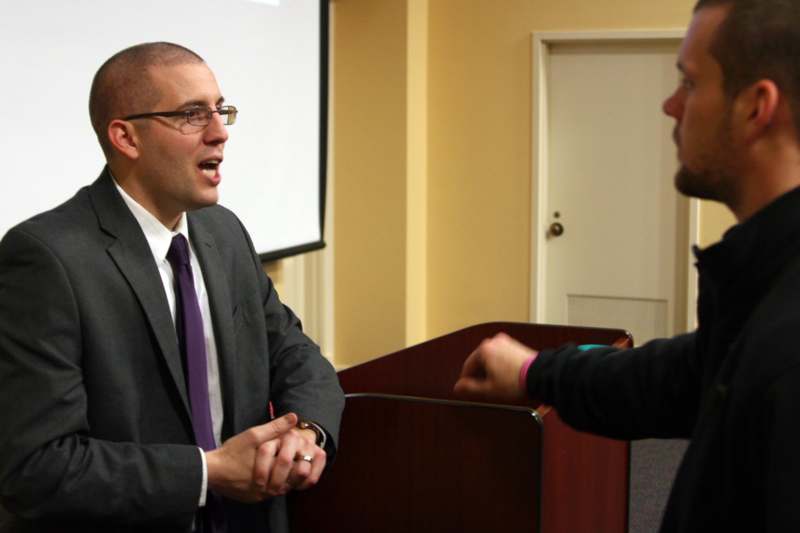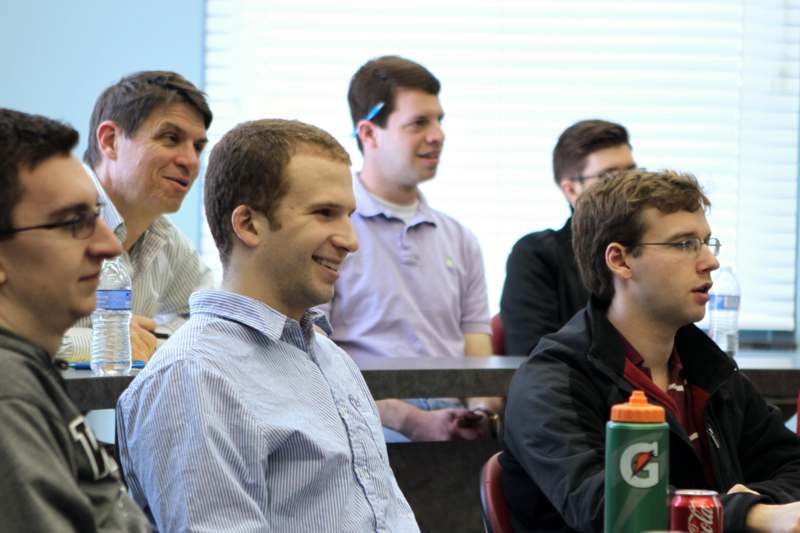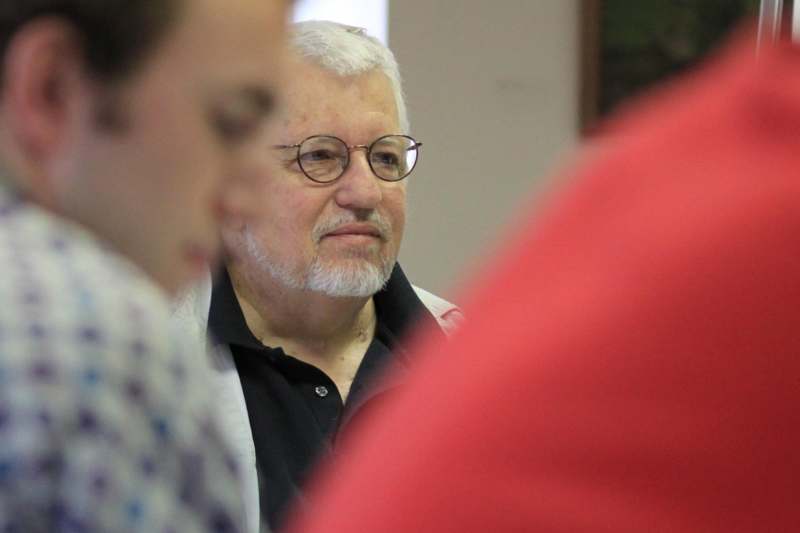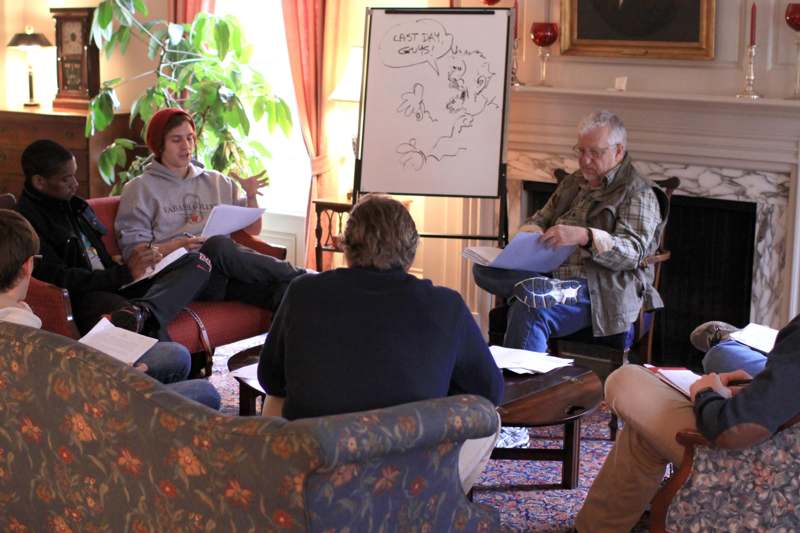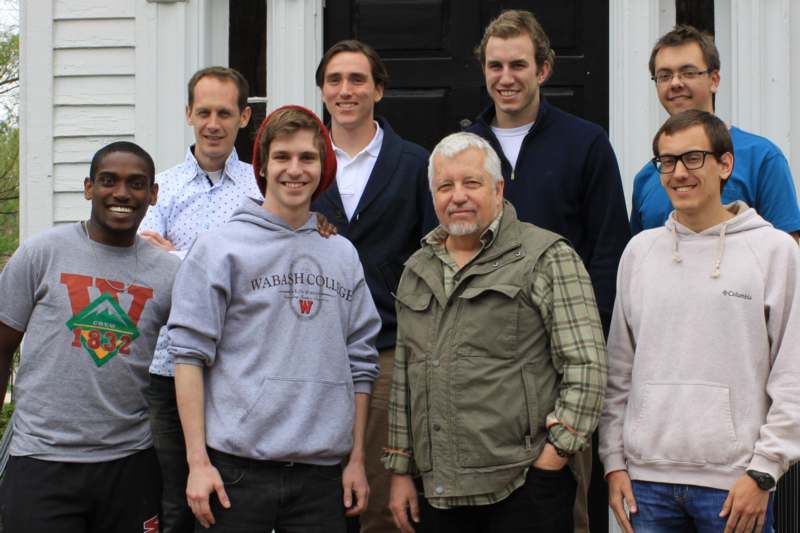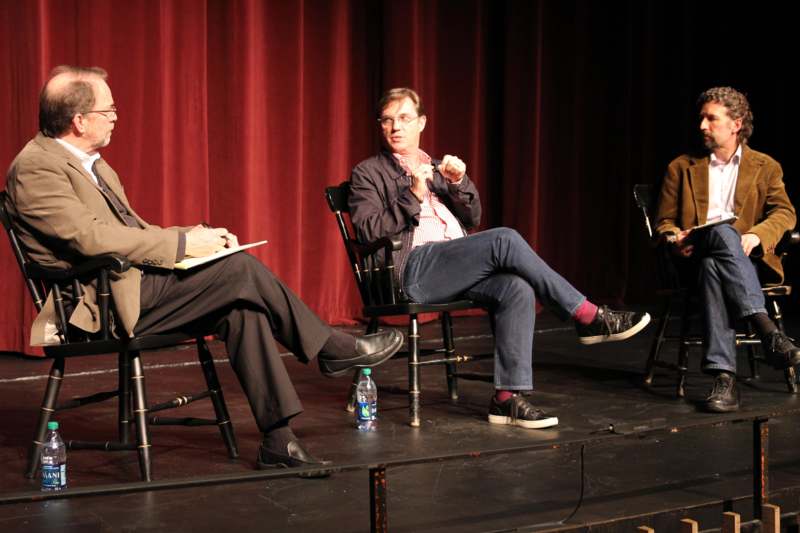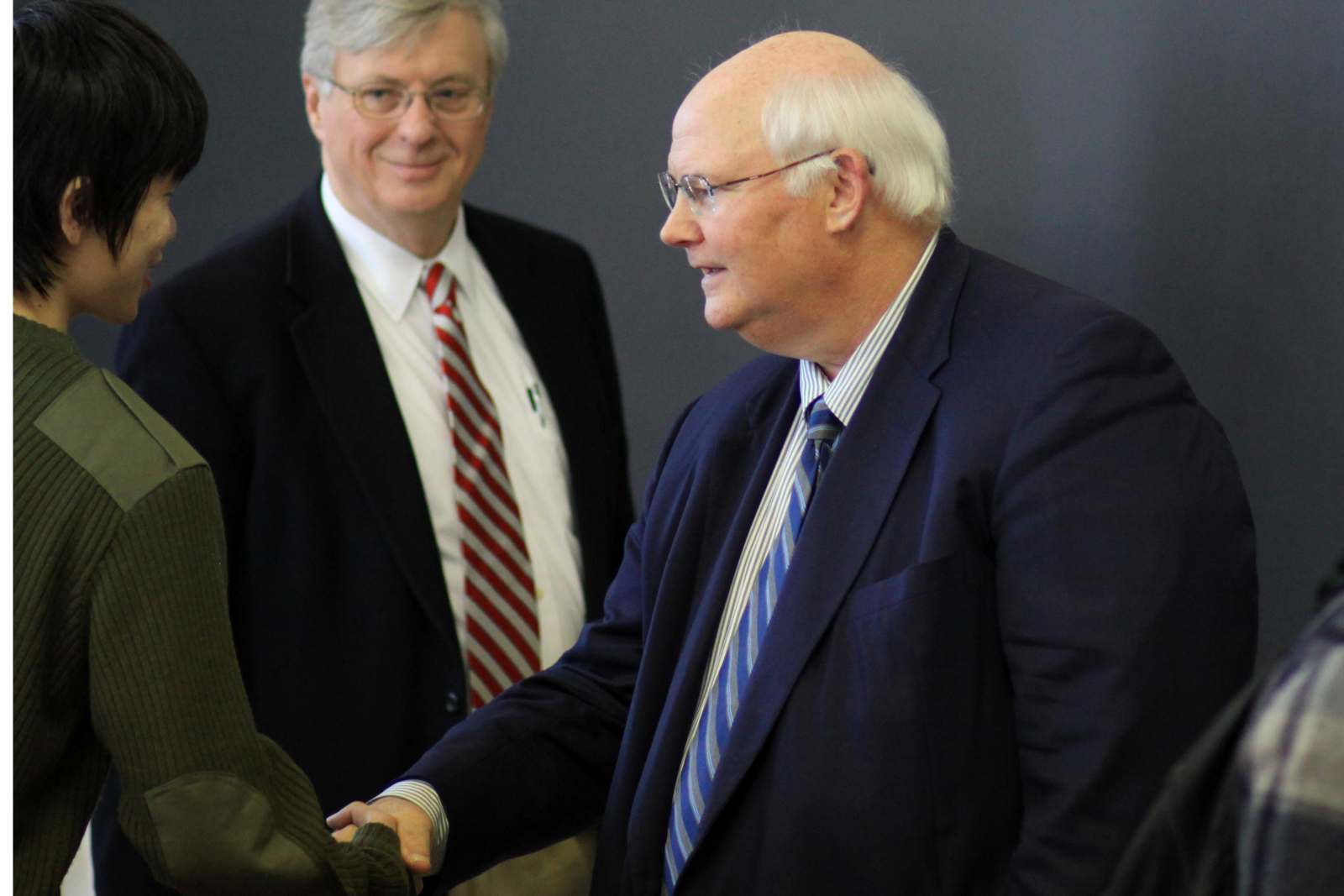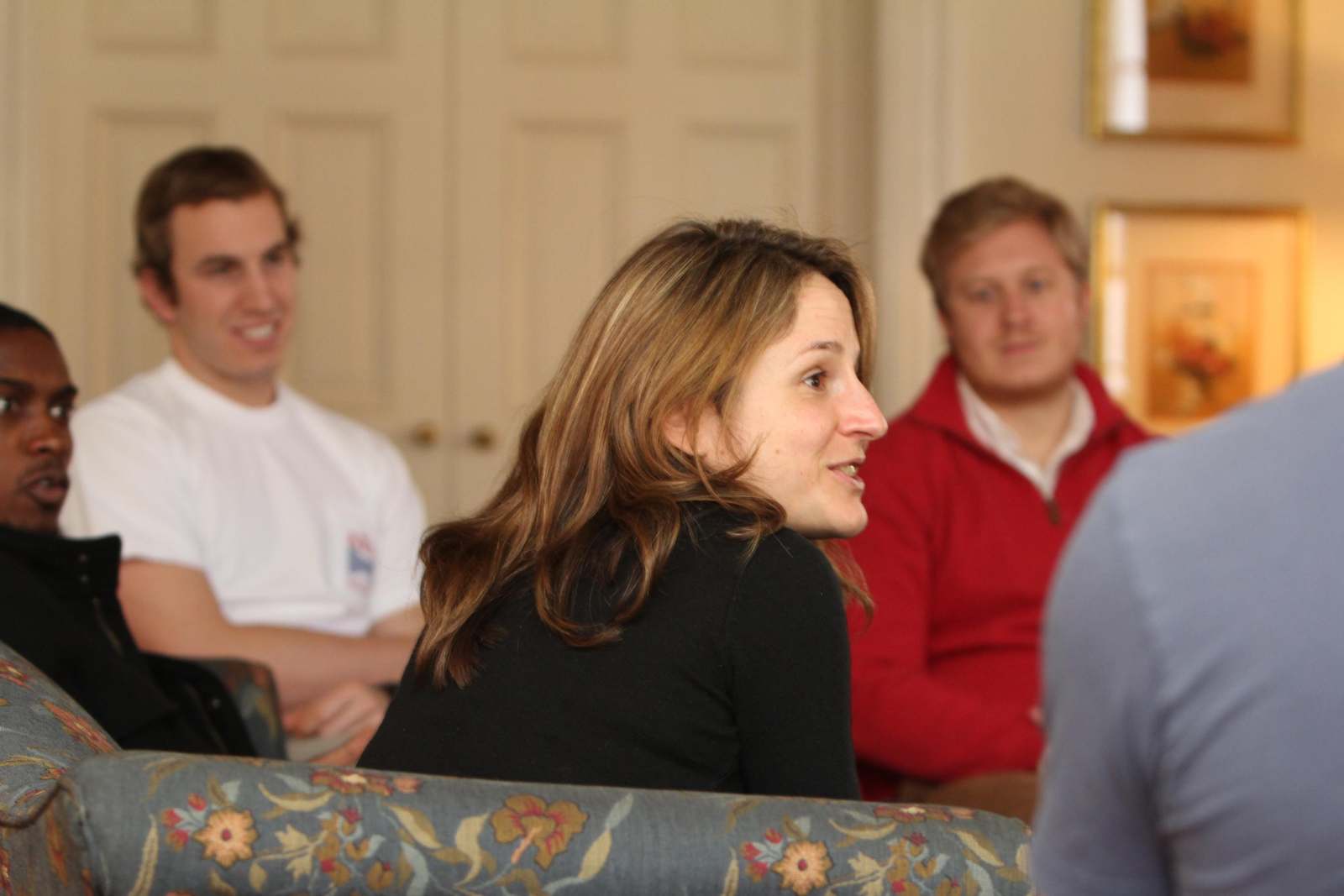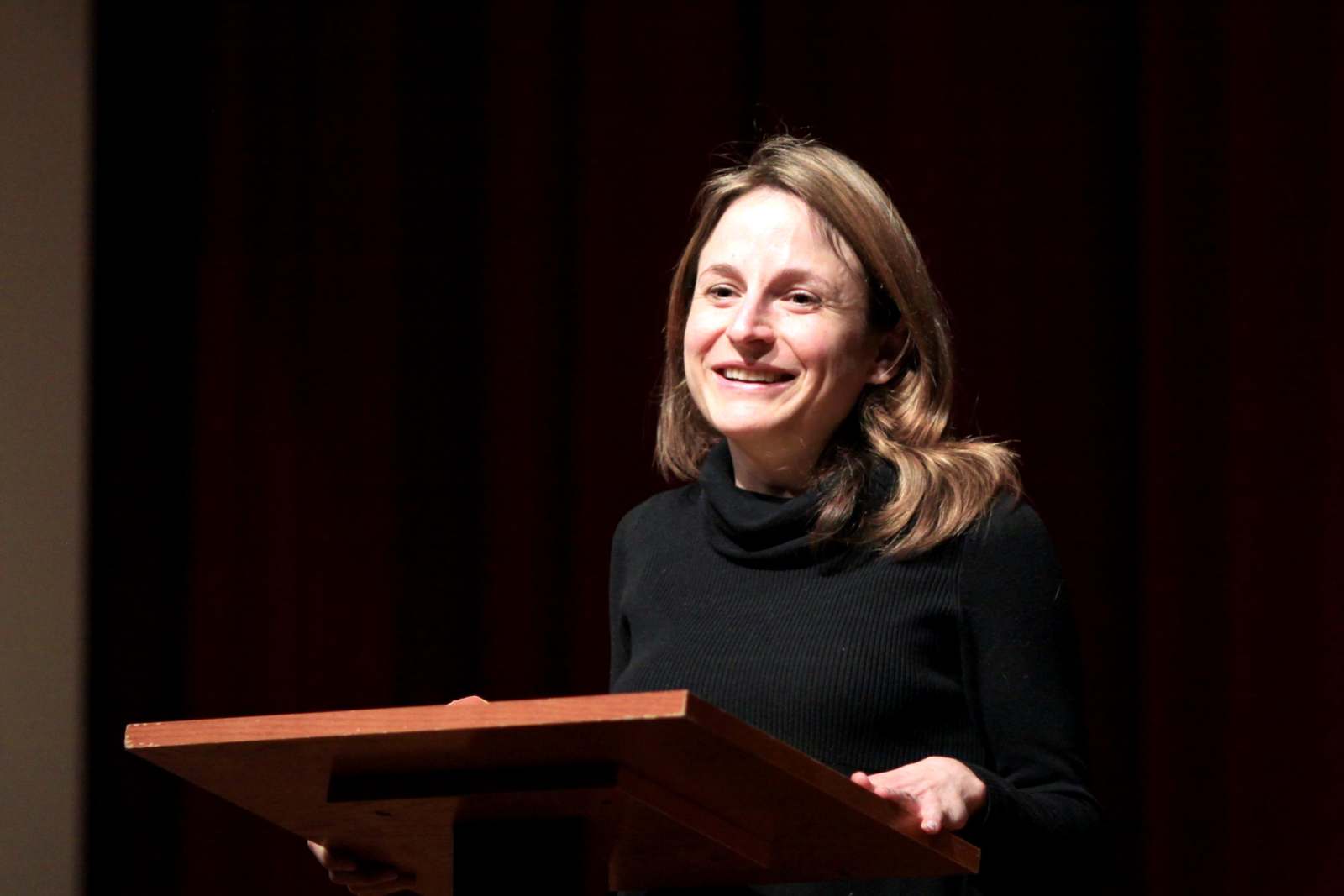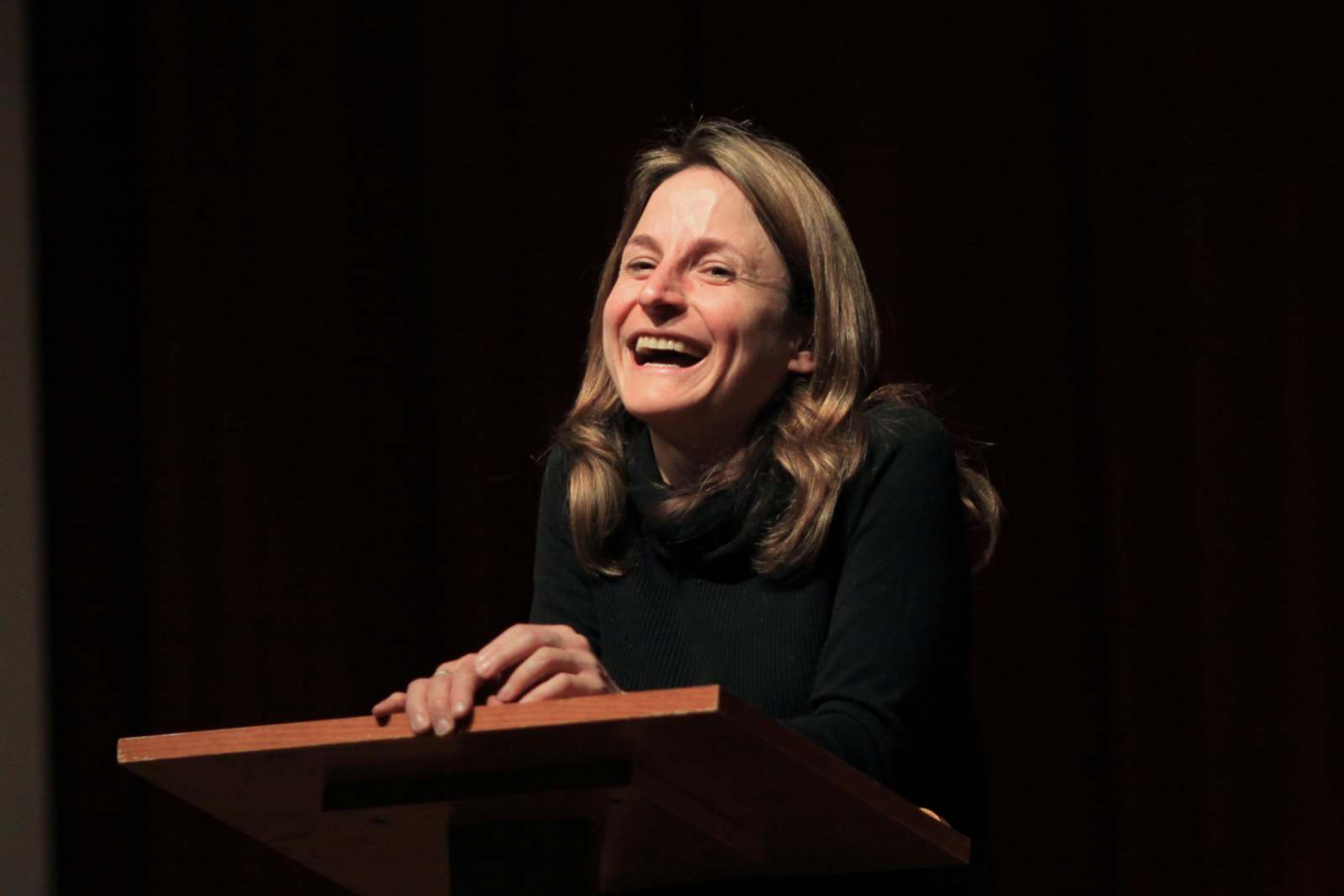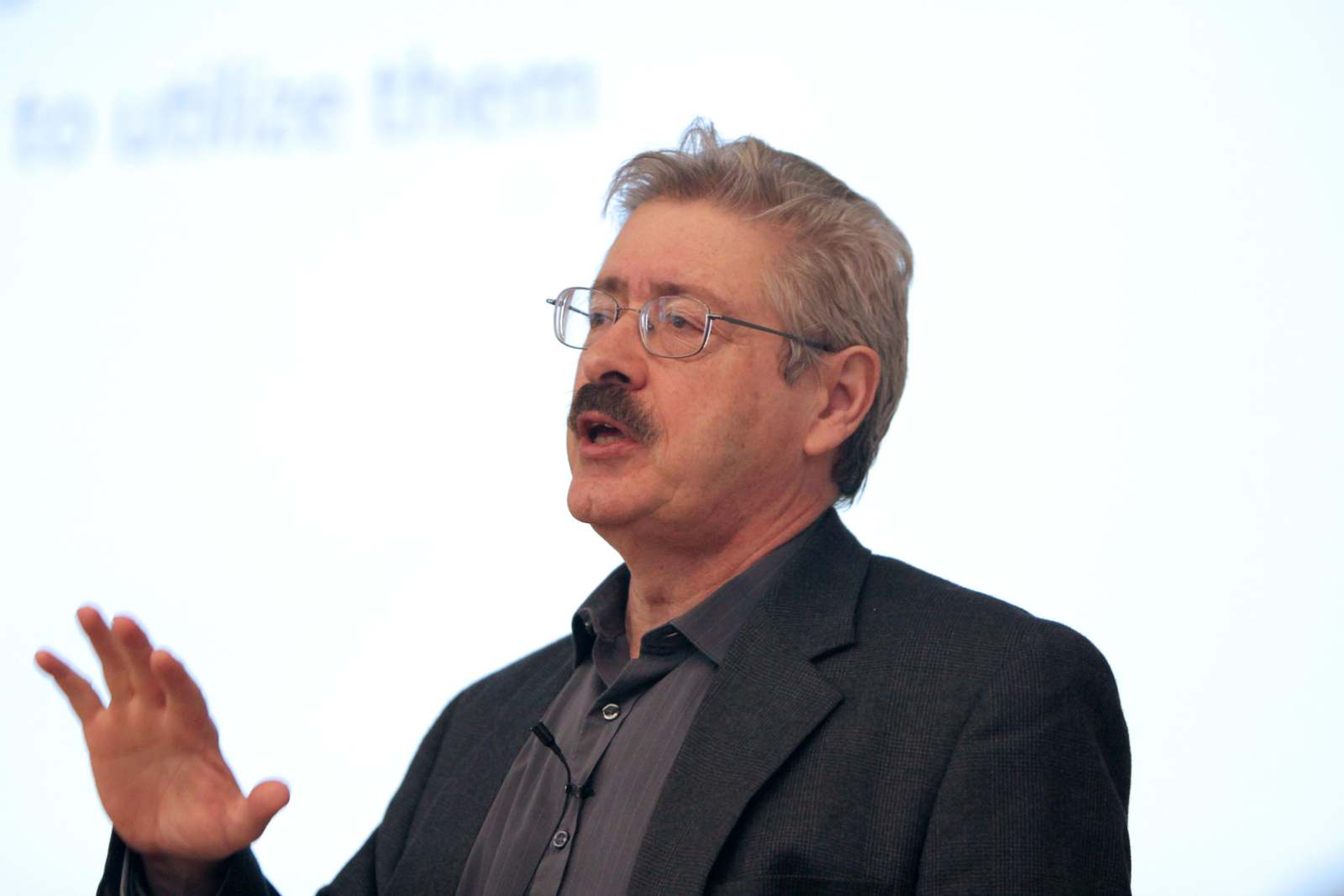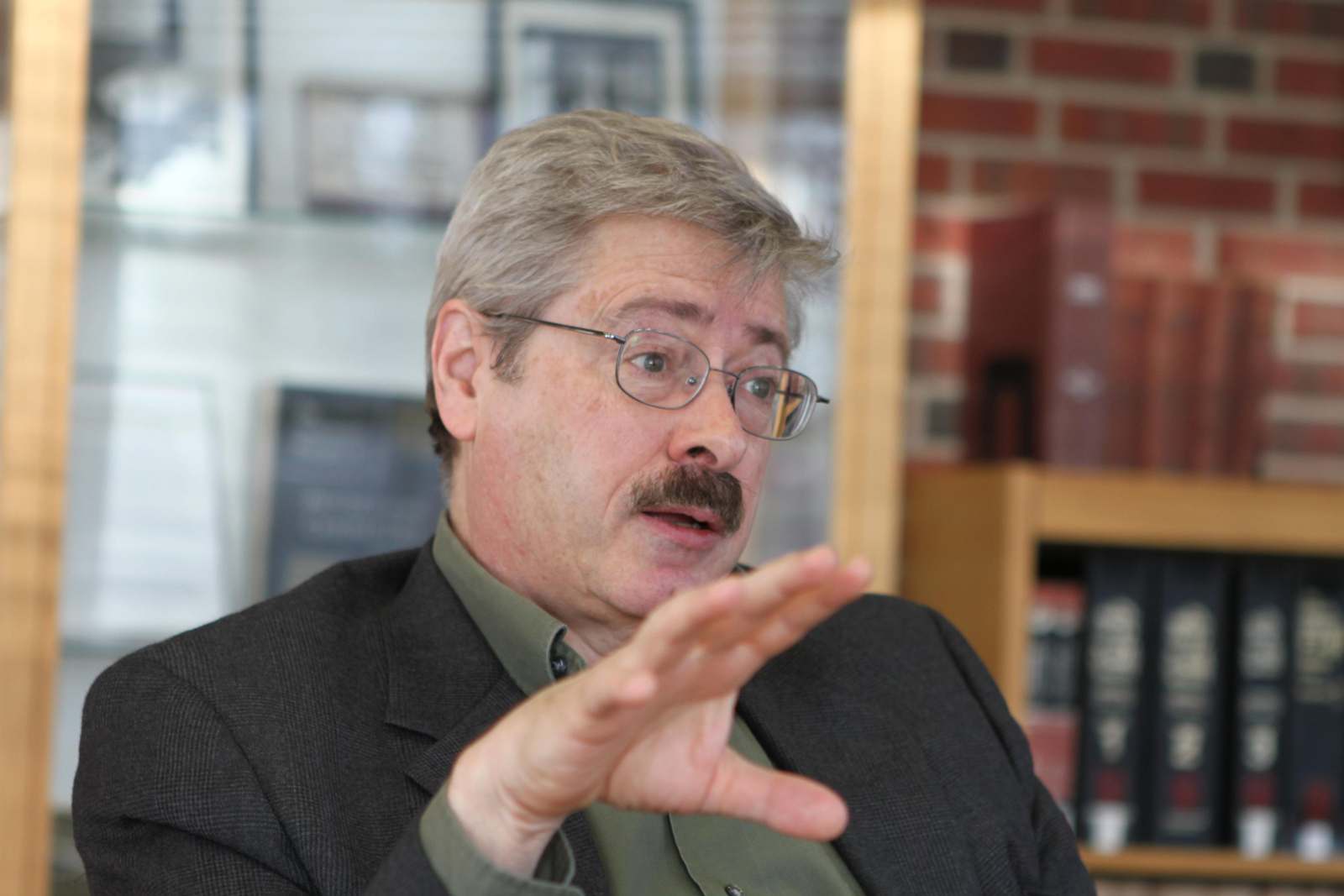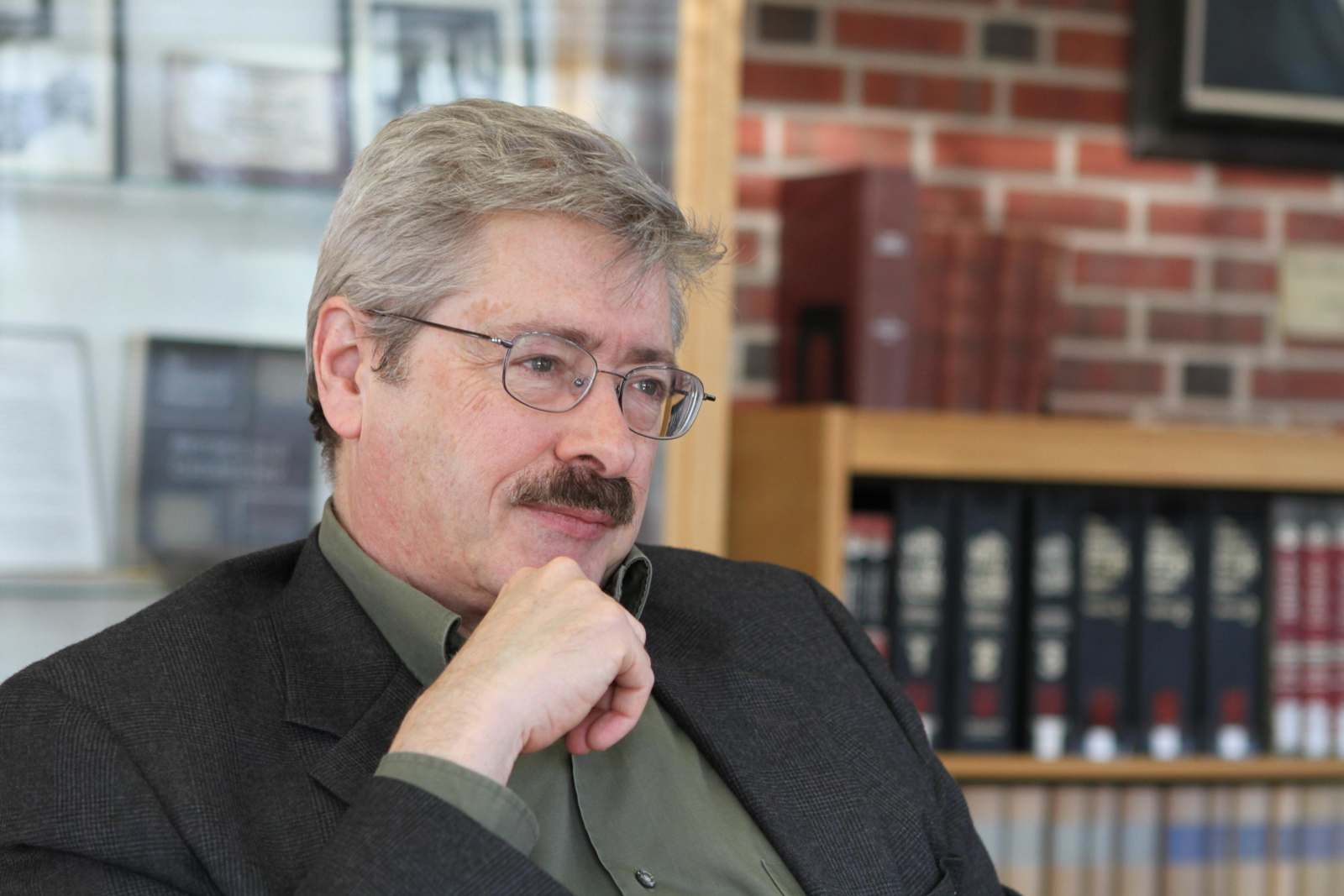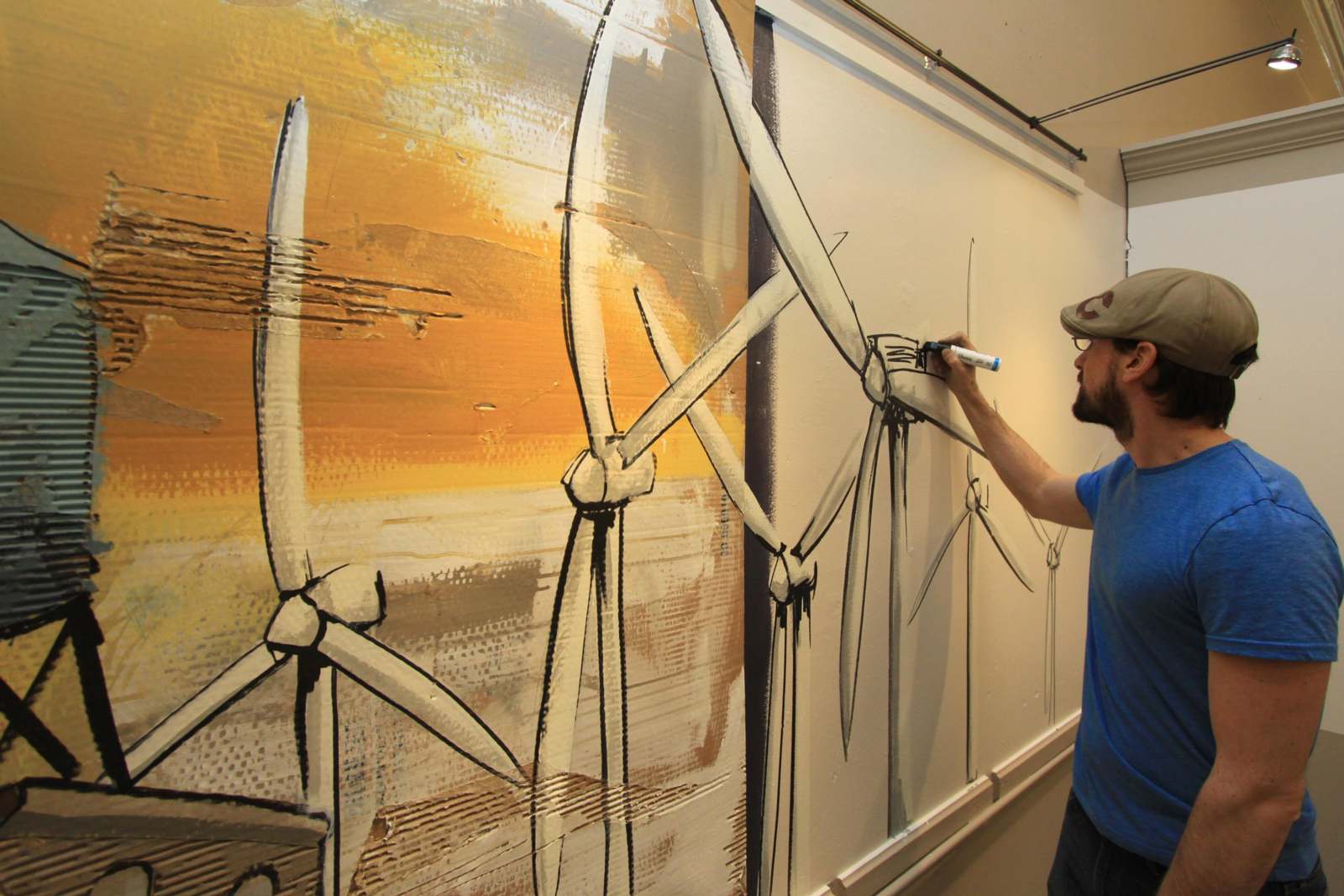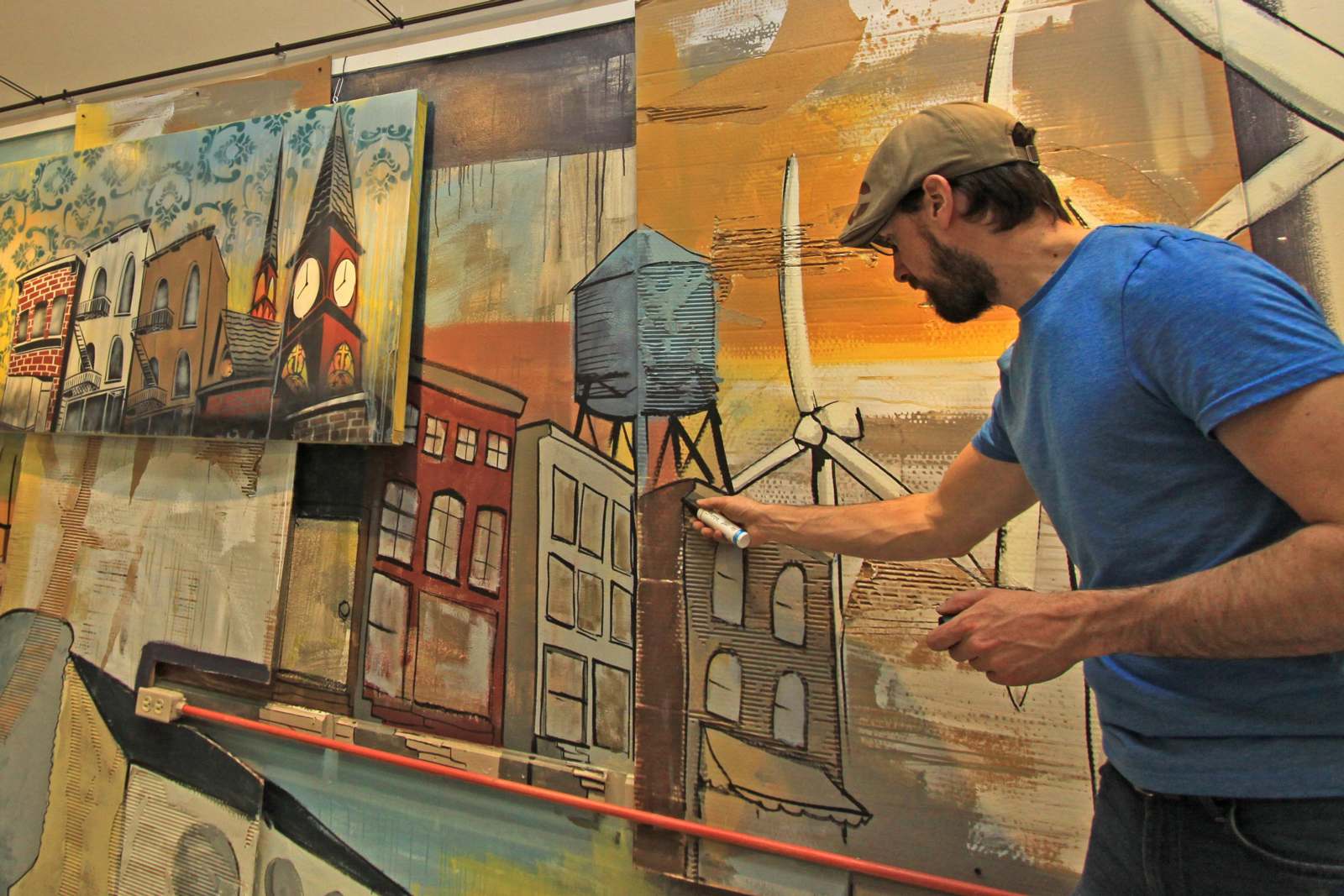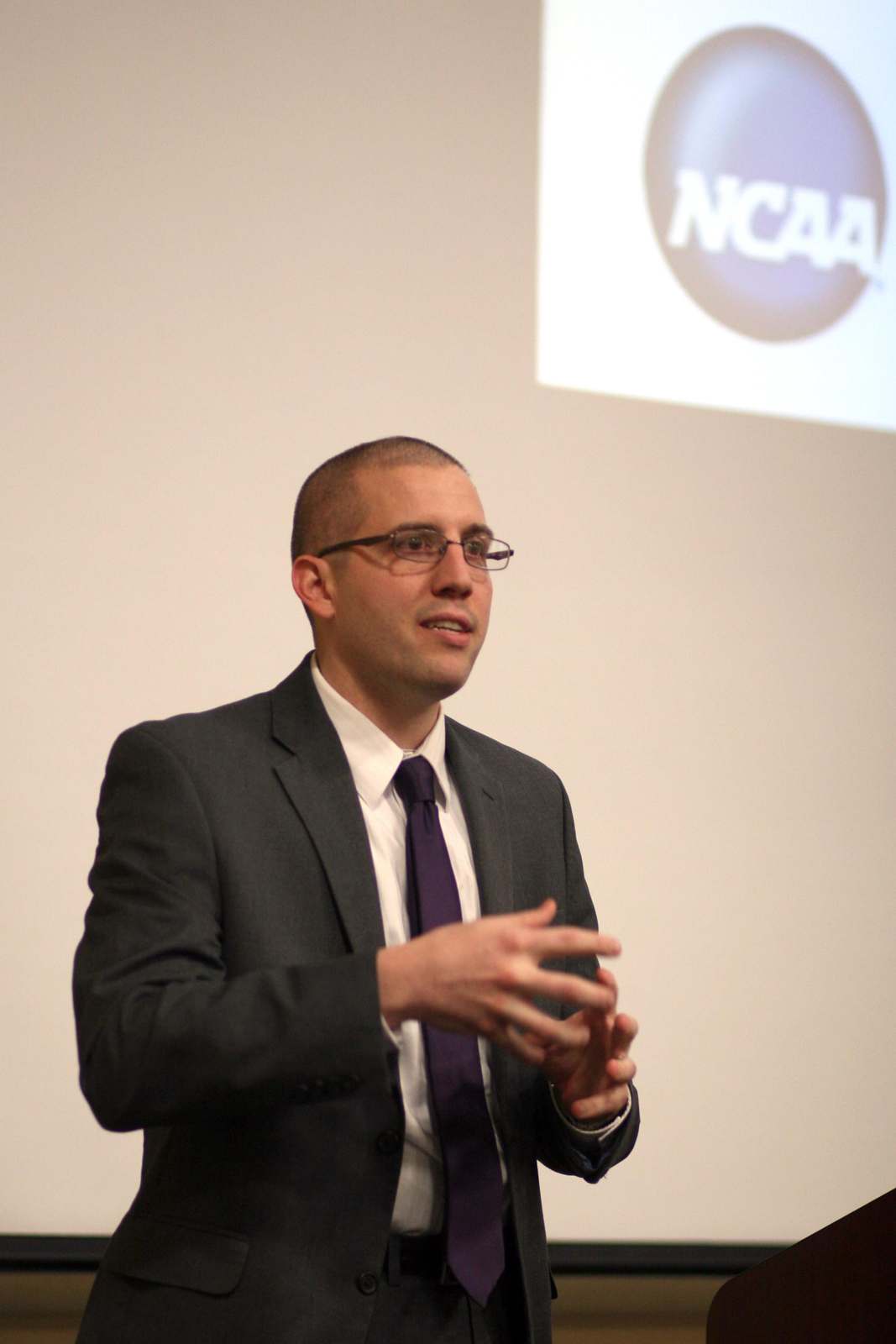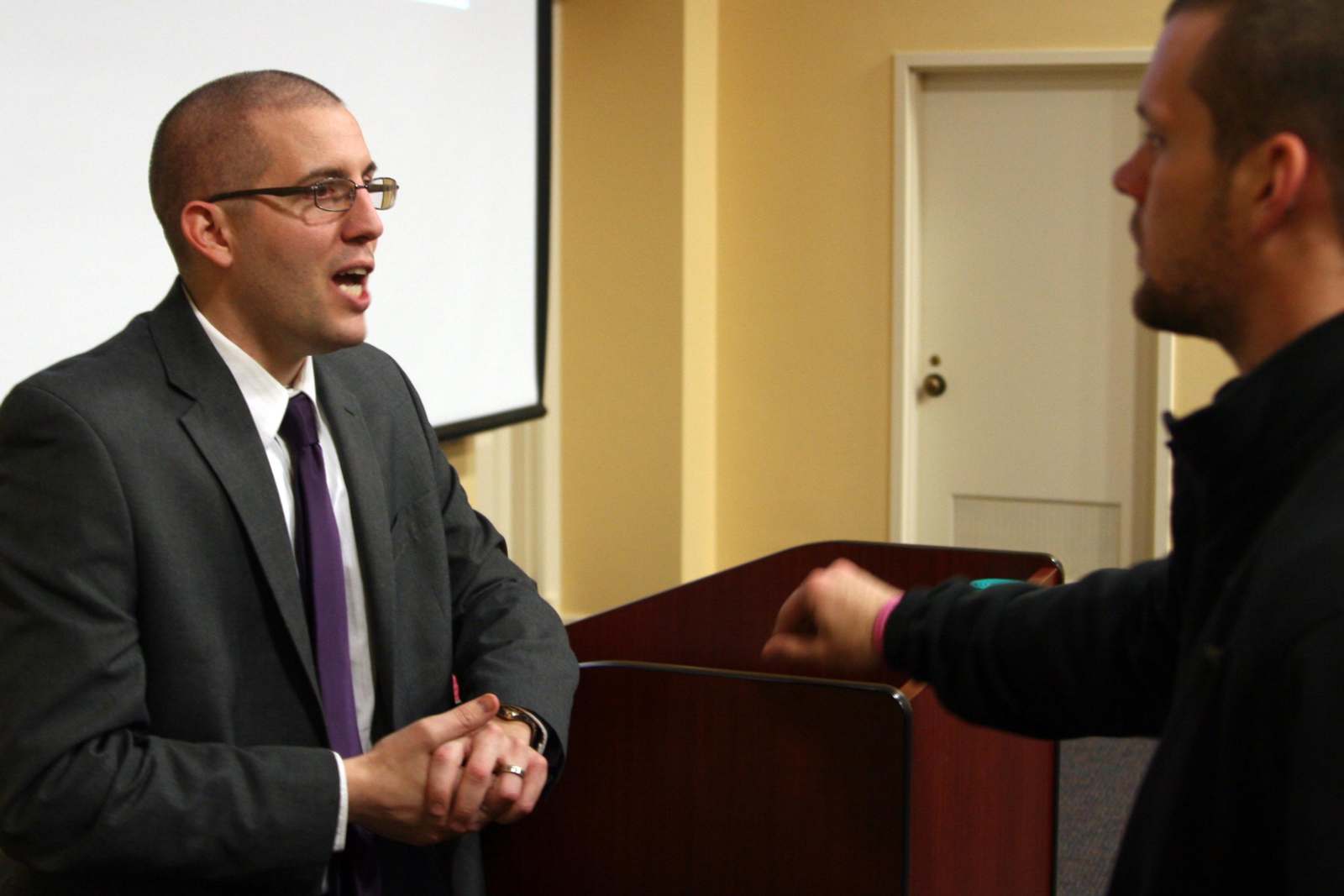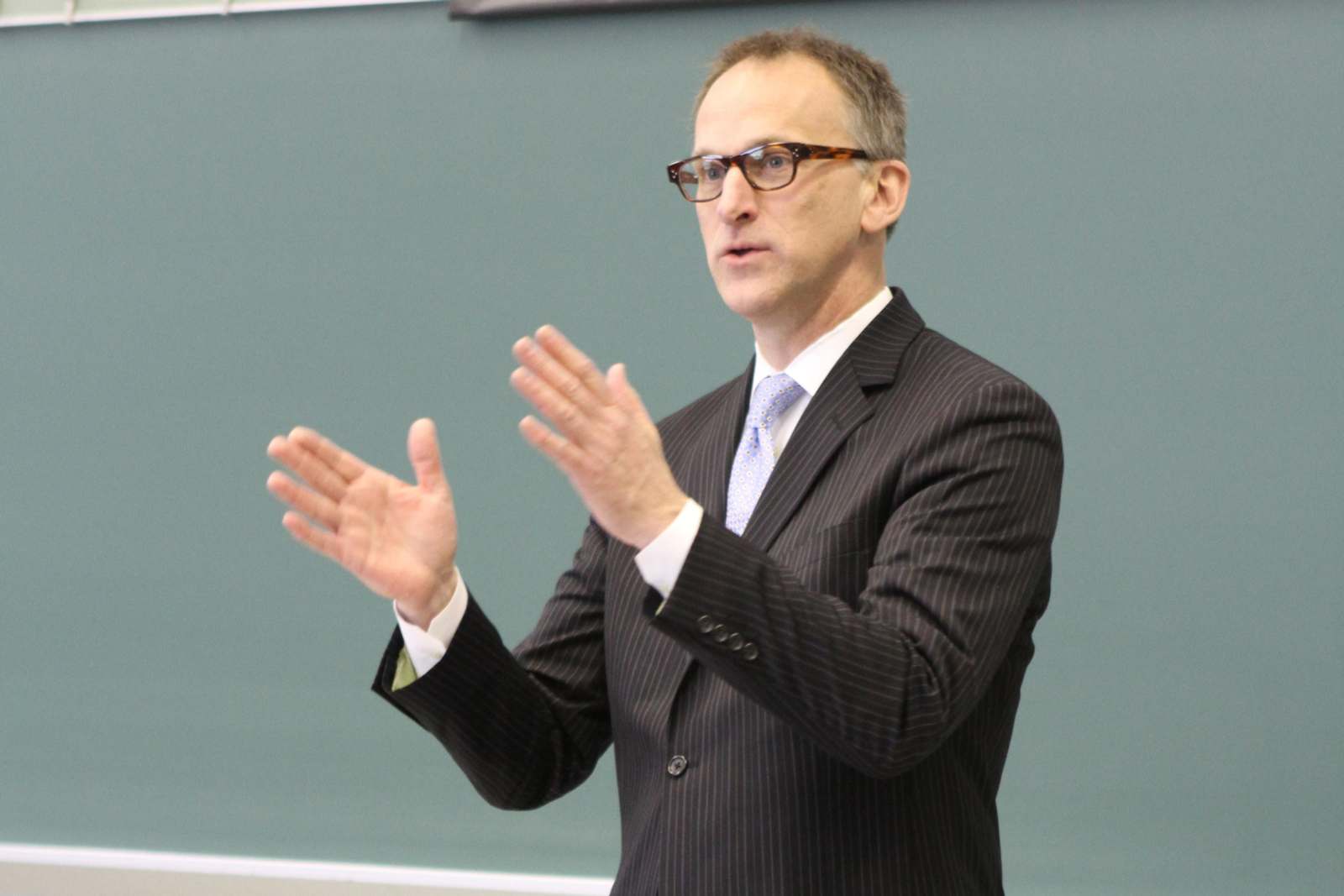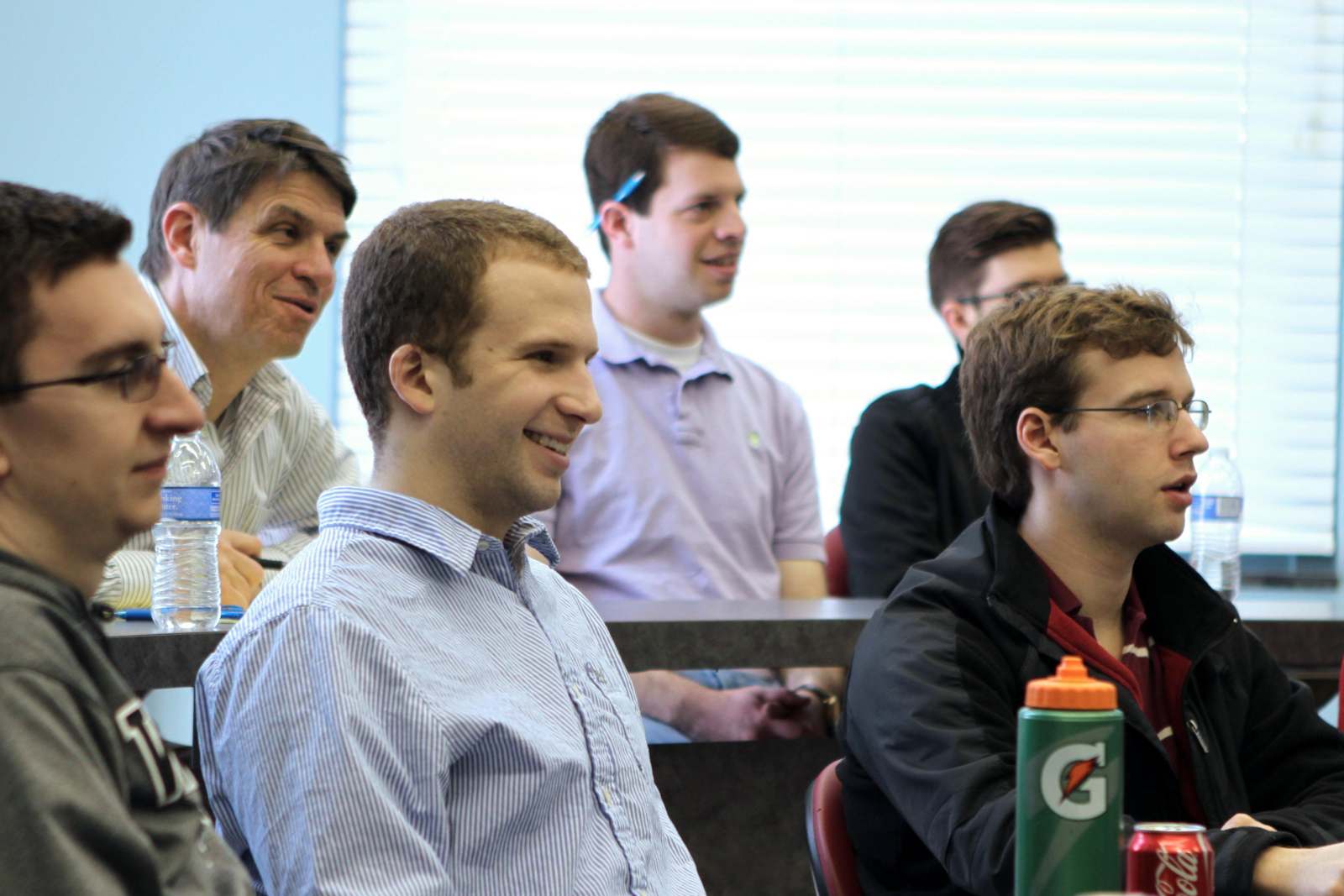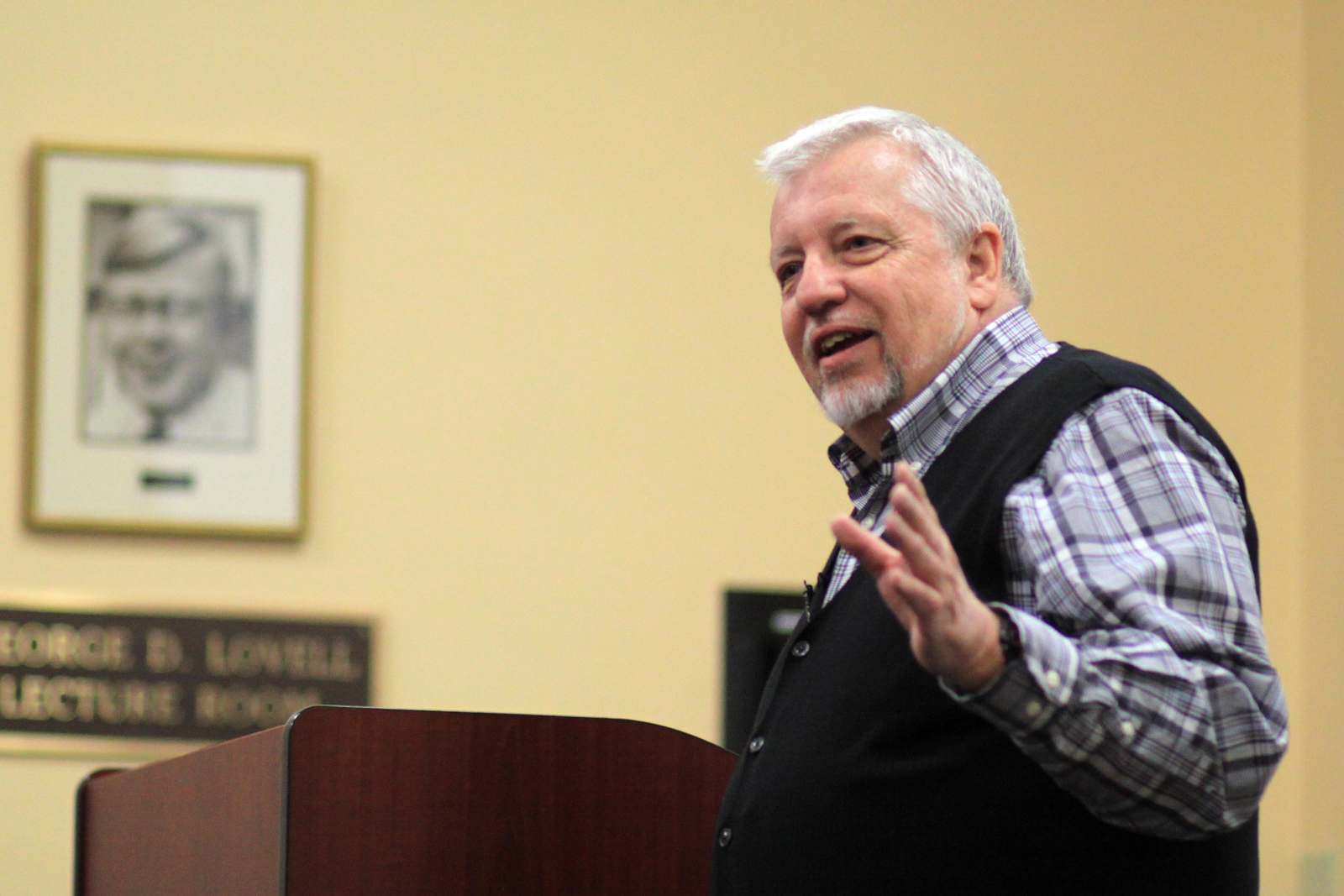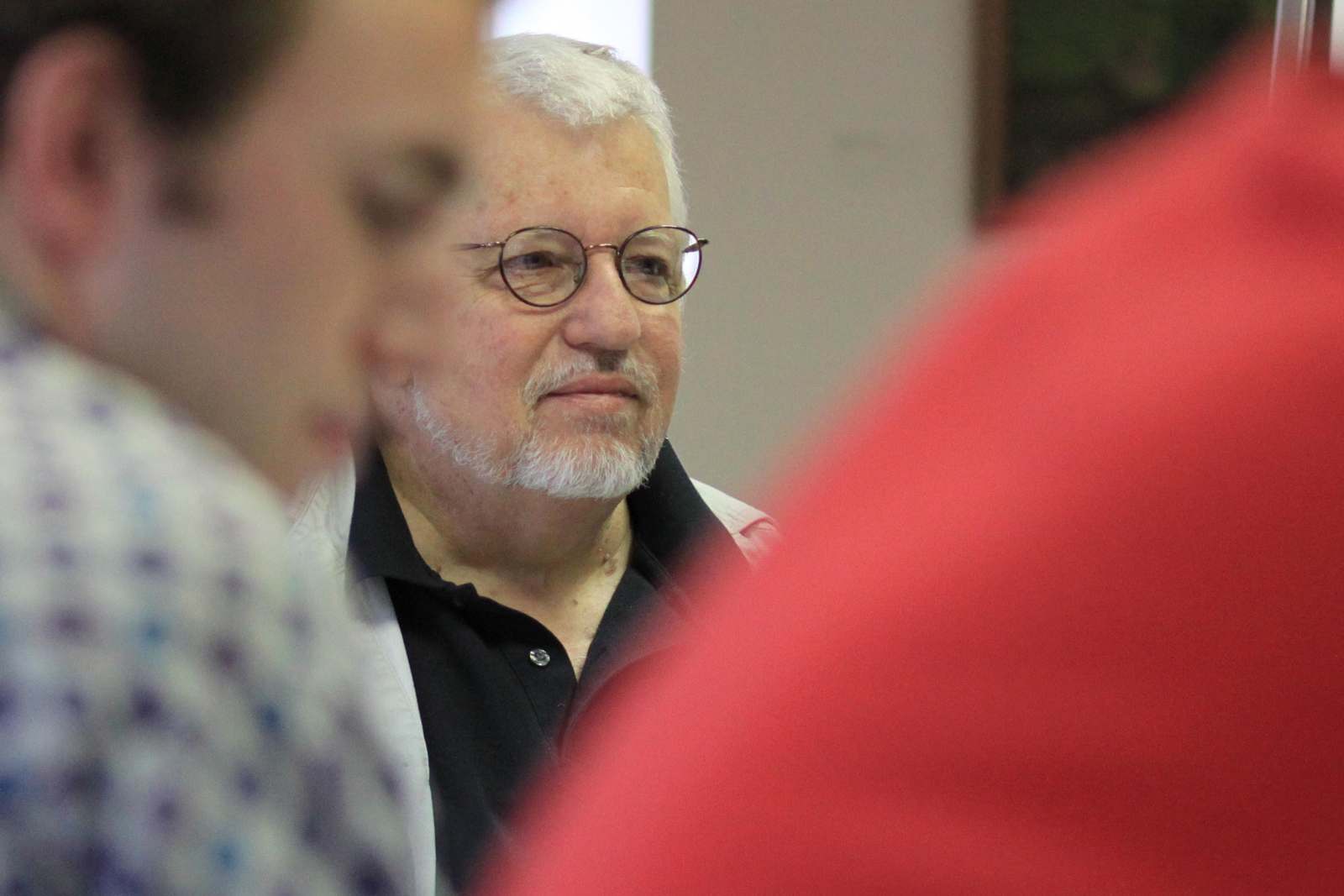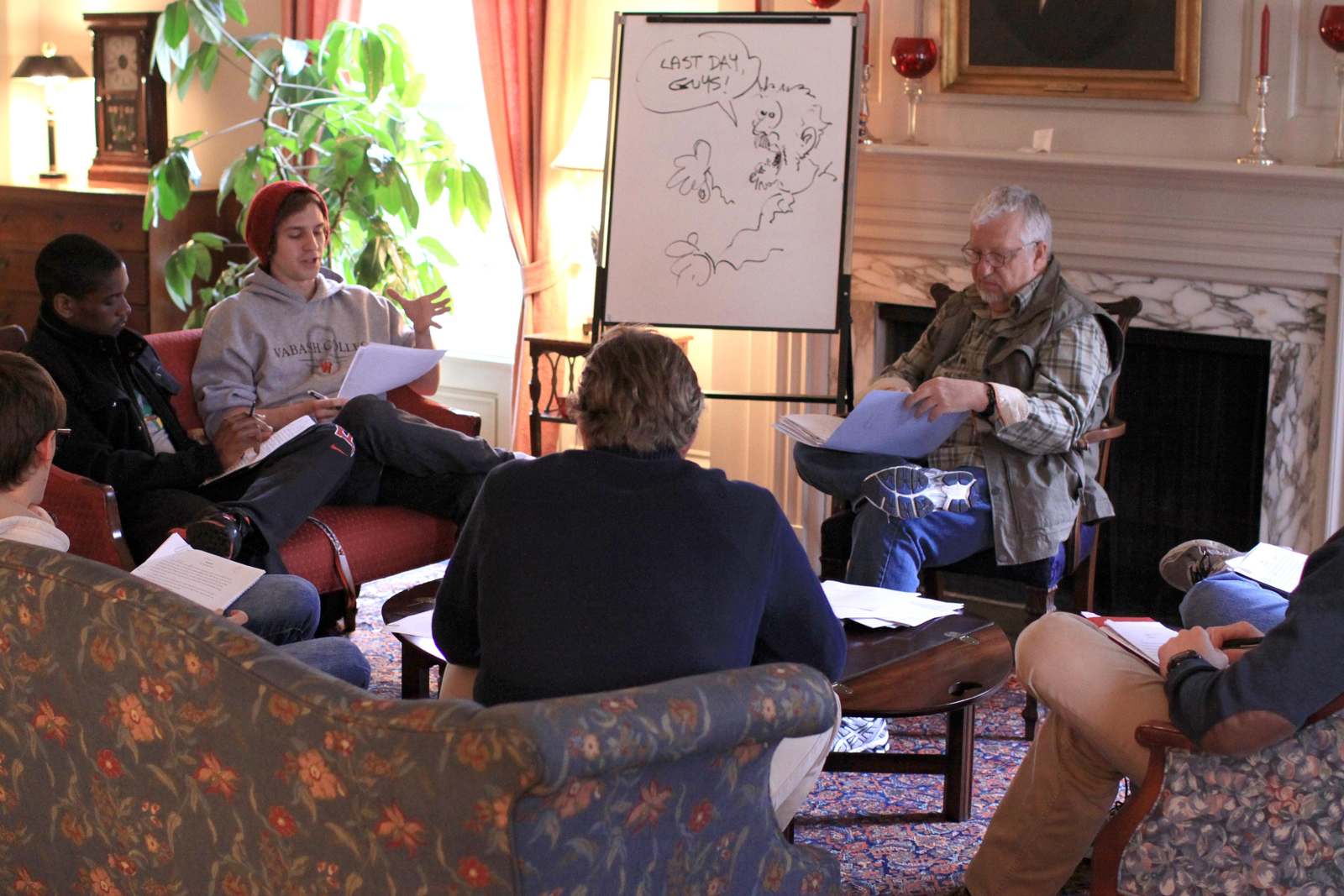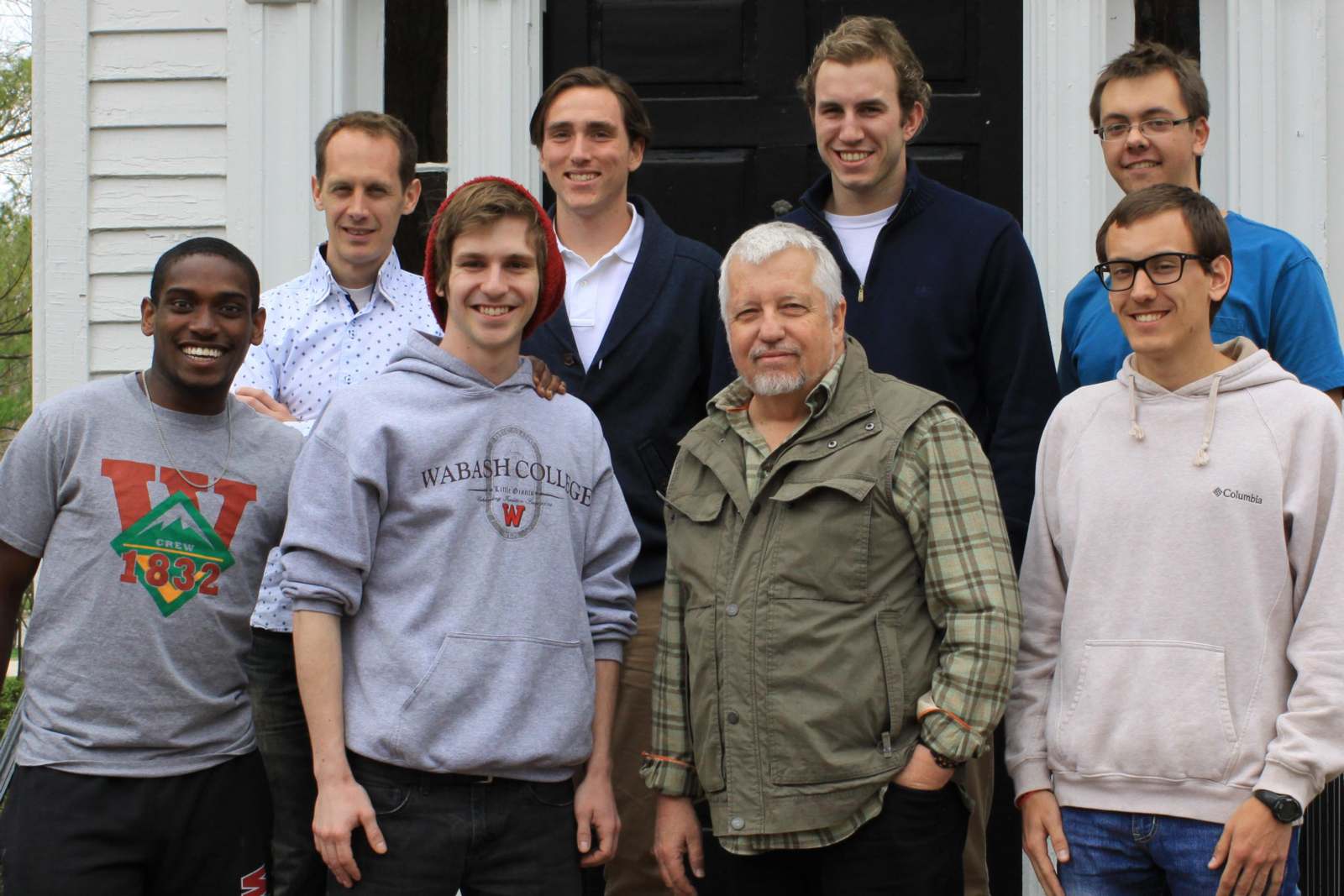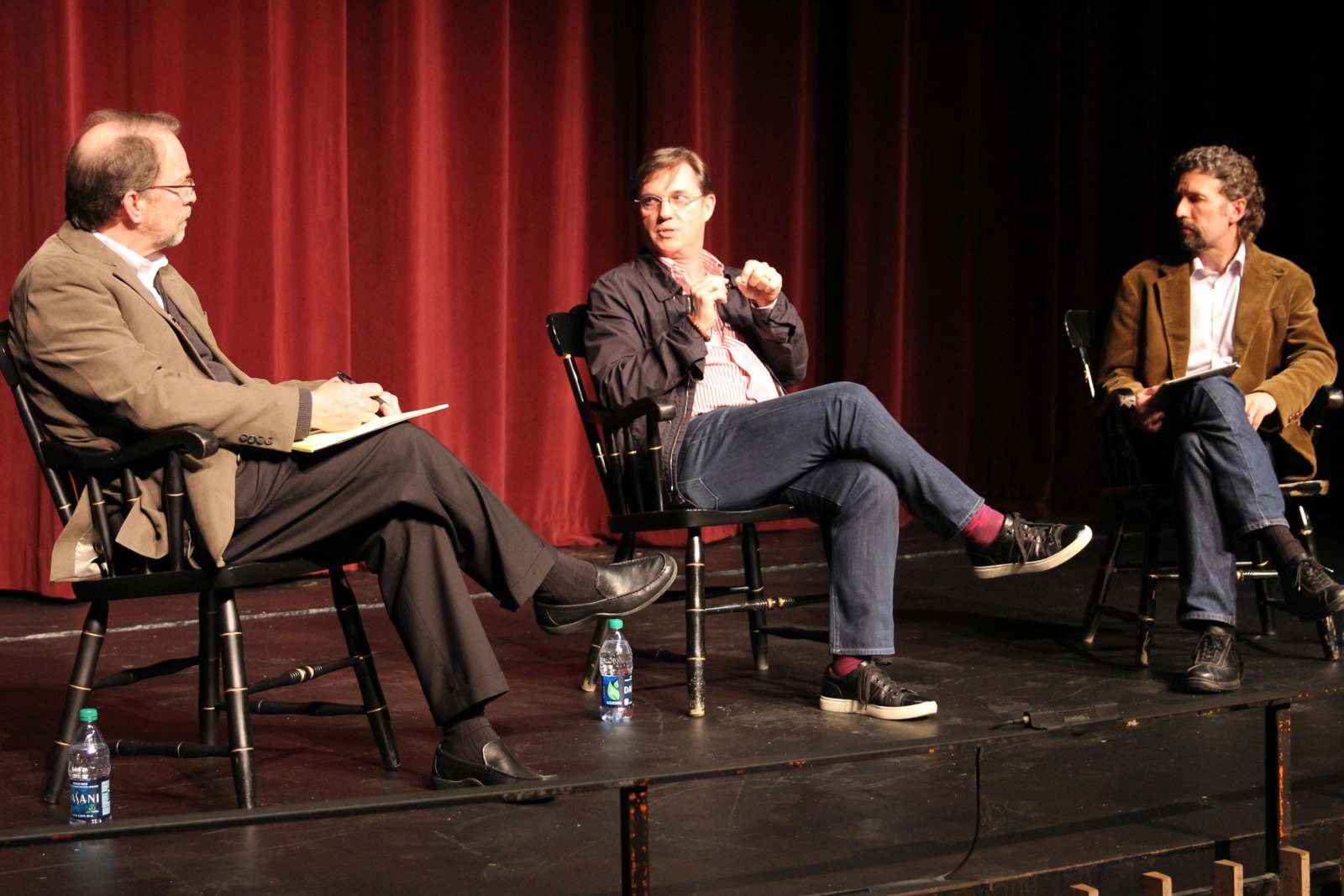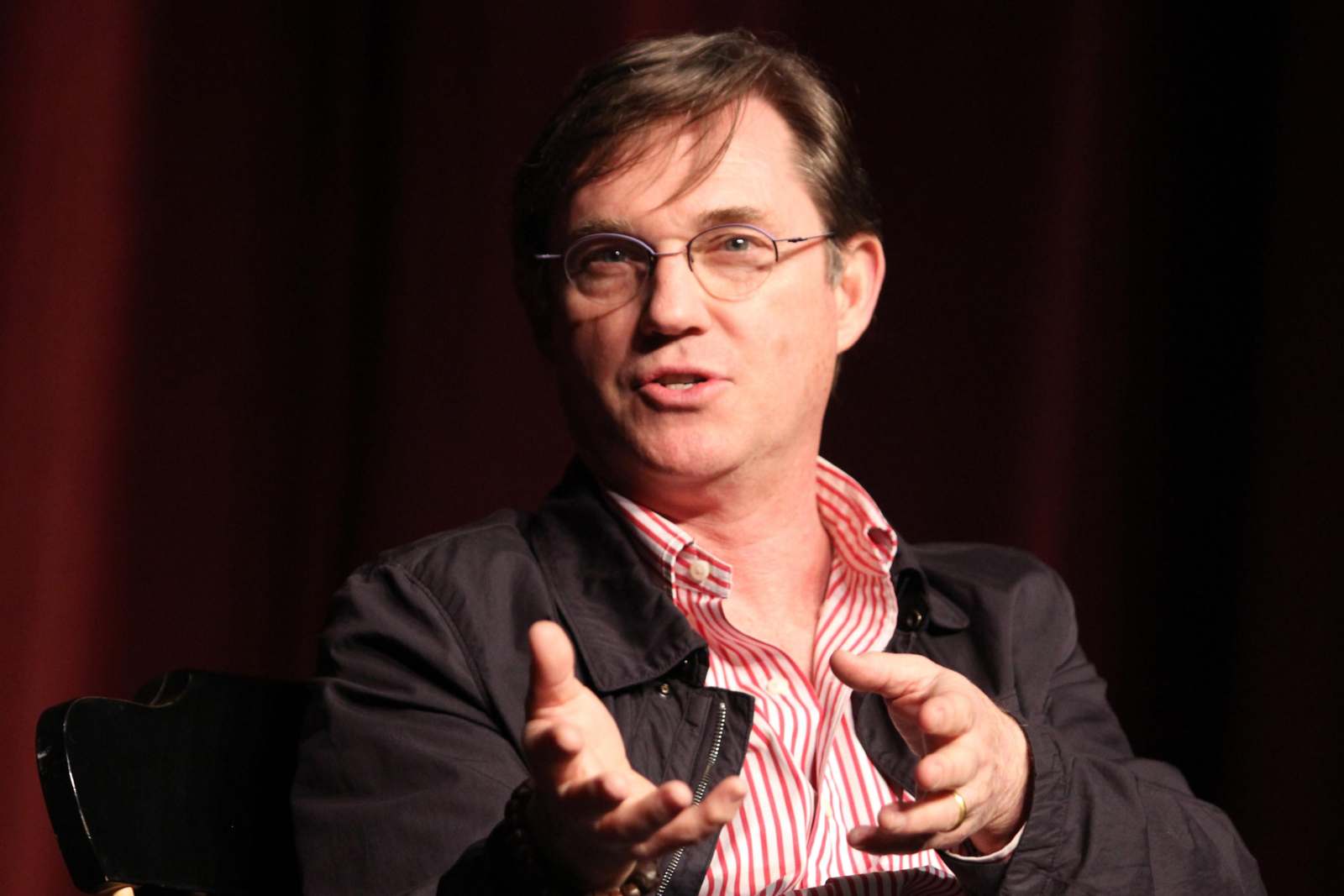Three Weeks at Wabash: 'Passion is for Pros'
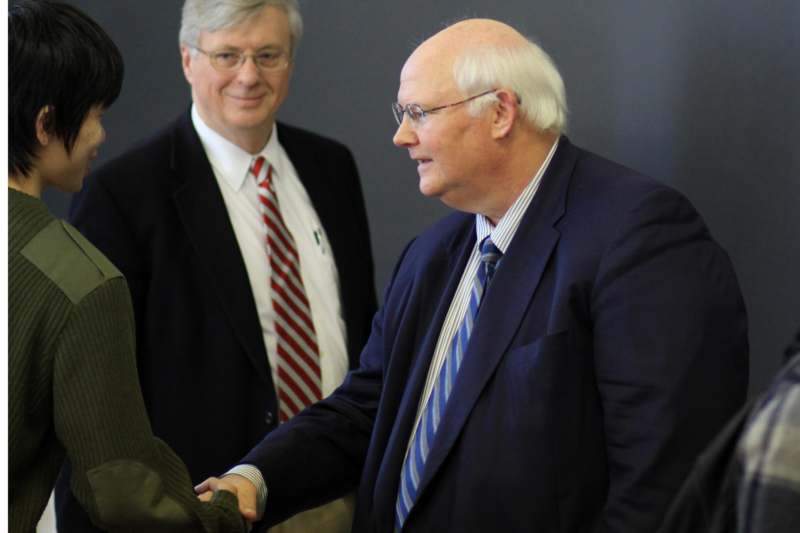
'You can’t fake this stuff,' Wabash College Trustee David Shane (at right) told students during a session for Callings, the College’s program that helps students find their vocation. 'Interest is for amateurs, passion is for pros.' And for the last several weeks students have received a double dose of that passion from visiting lawyers, visual artists, writers, cancer researchers, sports administrators, and even an alum whose avocation is his passion. Here are some photos of those speakers whose conviction and love of their work is helping students to discern their own callings.
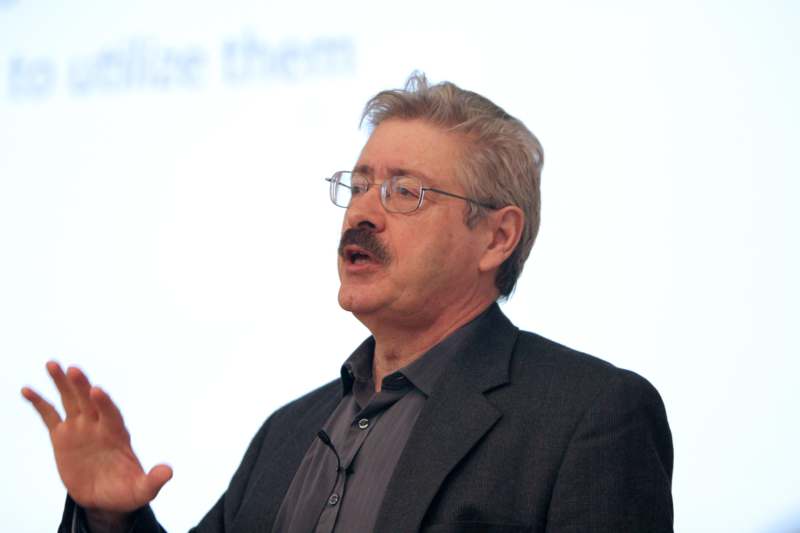
One of the College’s most distinguished scientists, Dr. Tom Roberts ’70 visited Wabash to deliver the annual Haines Lecture in Biochemistry and to talk with faculty and students about Gleevec, the highly successful cancer drug developed from work in his lab at the Dana Farber Cancer Institute at Harvard University, a drug that has made one form of cancer manageable with a pill a day. Roberts began his talk for the general public with a reflection: ‘I’ve spent the last 30 years working on smart drugs; I should have been spending more time thinking about the economic implications of the smart drugs people like me and others have been working on.’ He took the next 40 minutes to do just that.
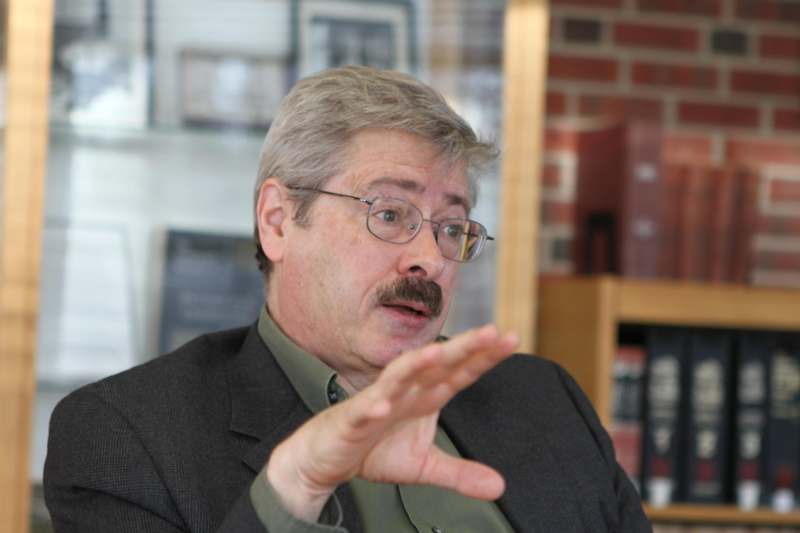
‘Health care takes too much of the public’s funds, and these smart drugs are part of the problem,’ Roberts said. After giving examples of how several of the drugs work, their limitations, and other approaches the near future may bring, he concluded: ‘Can we afford these smart drugs? If we use them smartly, we can’t afford to live wihout them.’
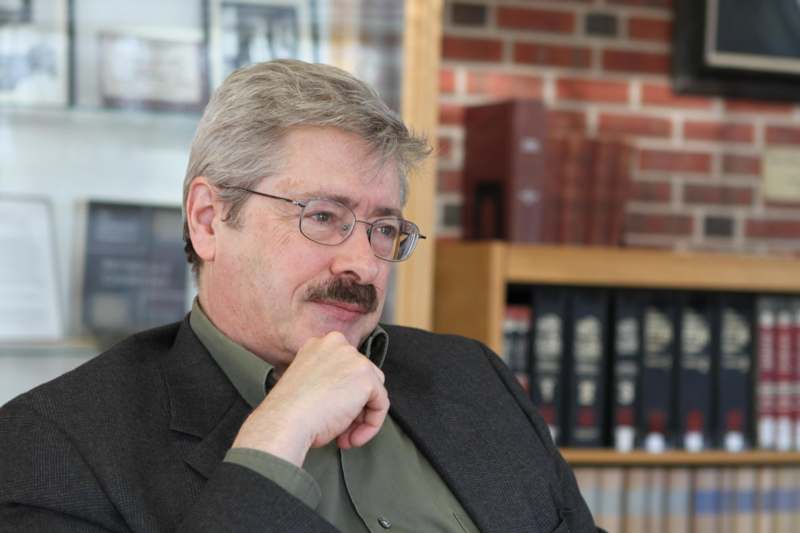
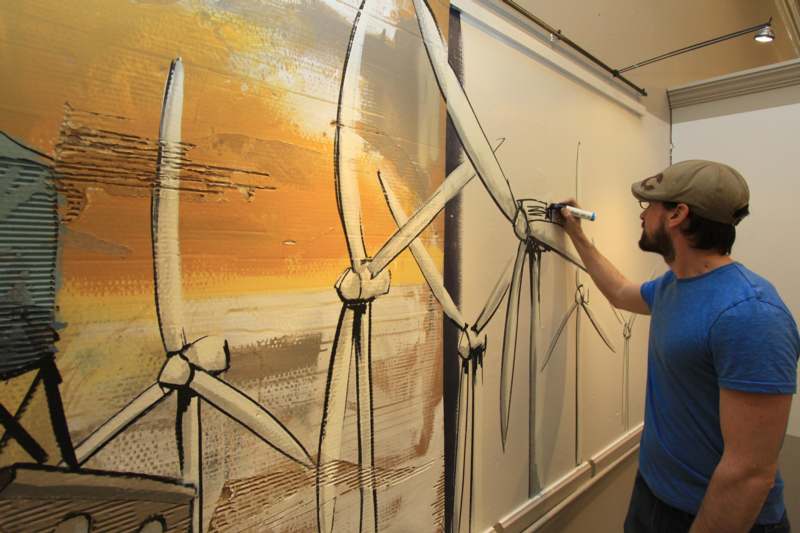
Medler's own idea of what art can be was changed when a Tibetan monk visited the College’s Eric Dean Gallery years ago. Medler was a Wabash religion major and watched as the monk spent a week creating a sand mandala, taking up most of the gallery’s floor space with the intricate work. The day it was finished, the monk poured all the sand back into a bag and dumped it into Sugar Creek. “I was studying Buddhism intensely at the time, then these guys come up and do the sand painting. I saw the temporal nature of these pieces, and why that is so important to think about. I wouldn’t say that event inspired this work, but I wouldn’t say it didn’t.”
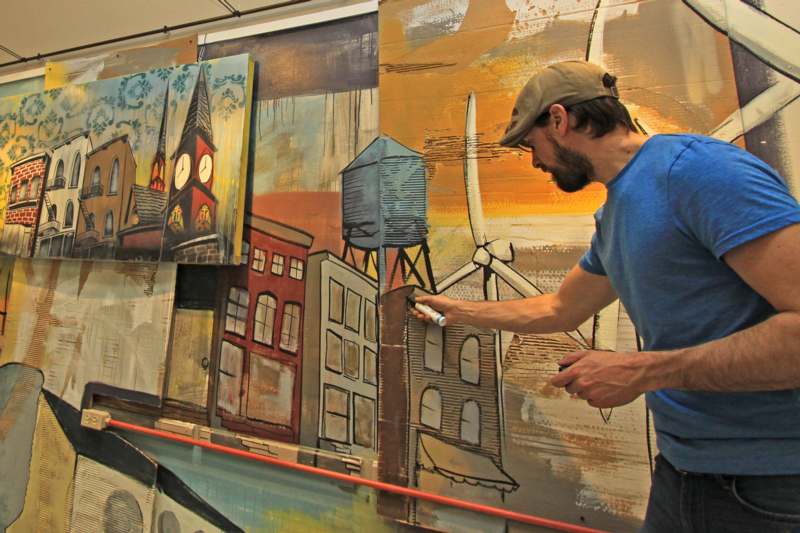
On April 12, artist Zach Medler ’01 opened his exhibit, 'Art from Where You Live,' at Crawfordsville's Athens of Indiana Gallery. Medler created the exhibit during the Gallery's open hours. “I wanted to work when the gallery was open so people could see the process. I don’t come in here with an idea—I come in with these materials, then I respond to the space, to what I saw when I drove by on the way in, to what comes to me while I’m here.'
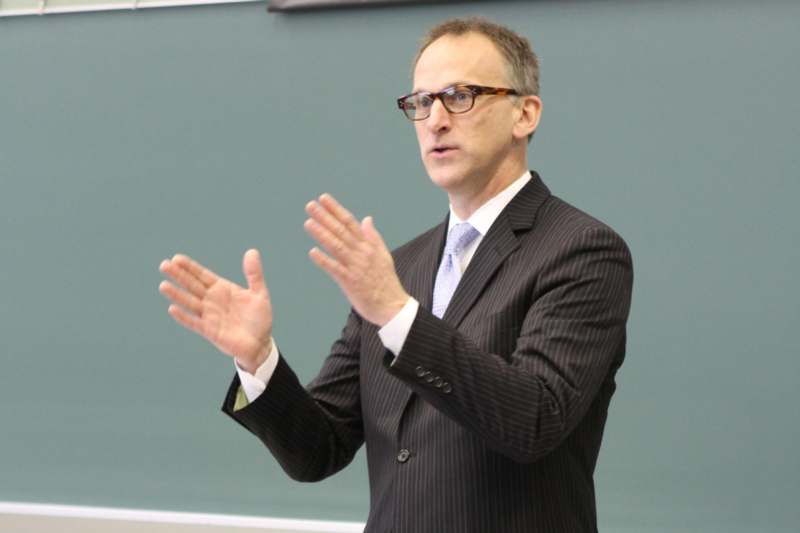
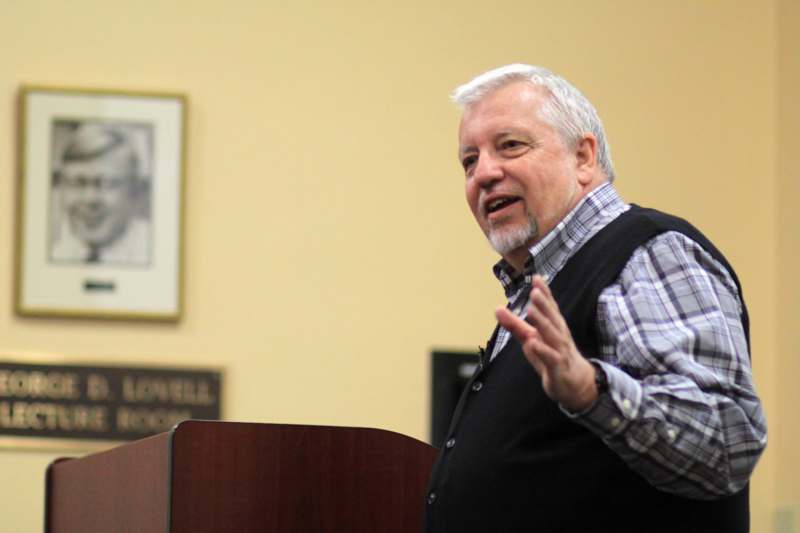
Award-winning and bestselling author Dan Simmons ’70 returned to campus last week to lead the first Wabash Writer's Workshop, a three-day intensive program that brought together six students with one of the world's finest and most successful writers. “If I were to advertise my visit, I’d say, ‘Full-time professional novelist Dan Simmons is hunting for a few good men to become the novelists of the future,’ he said. '“The world needs writers, and we need a Wabash novelist for the 21st century. I believe that Wabash, the quintessential liberal arts college, is the perfect incubator for the 21st century novelist.'
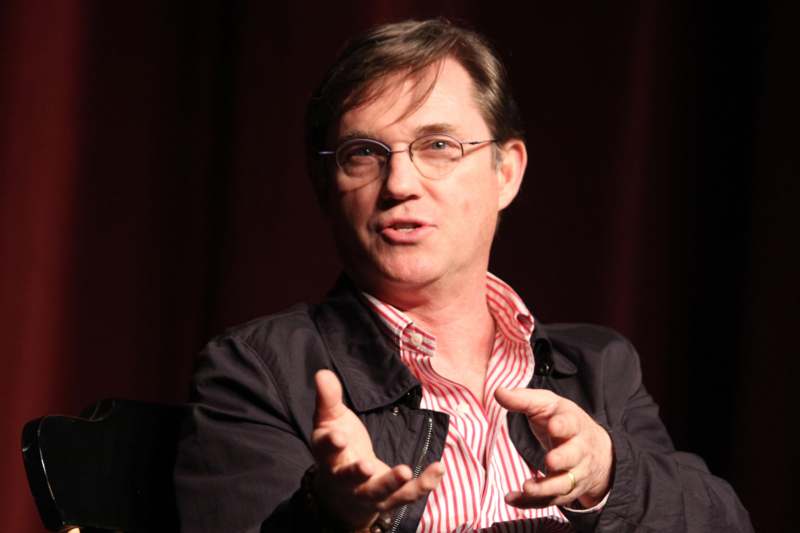
Thomas told students that, while film roles are more lucrative, he loves theater work and the opportunity to work with the words written by the best playwright. “The difference is texture and the excitement and real challenge is in the text,” Thomas said. He noted that making a movie or even television is hours of waiting and sitting and shooting scenes out of sequence. “In theater, once the curtain goes up everyone is going to get to go on and perform.”

